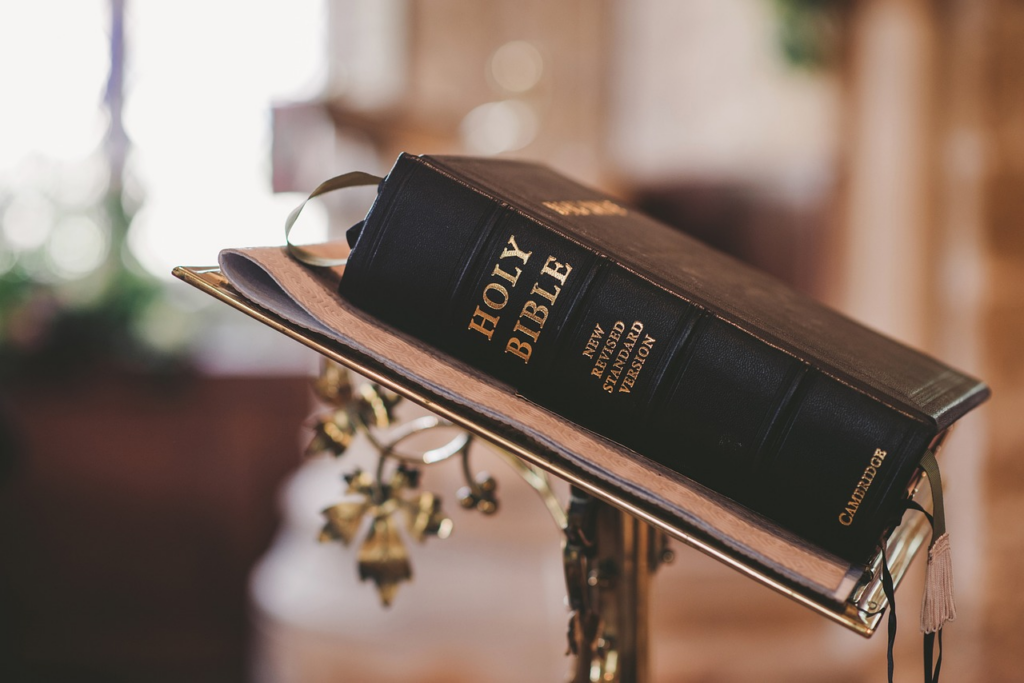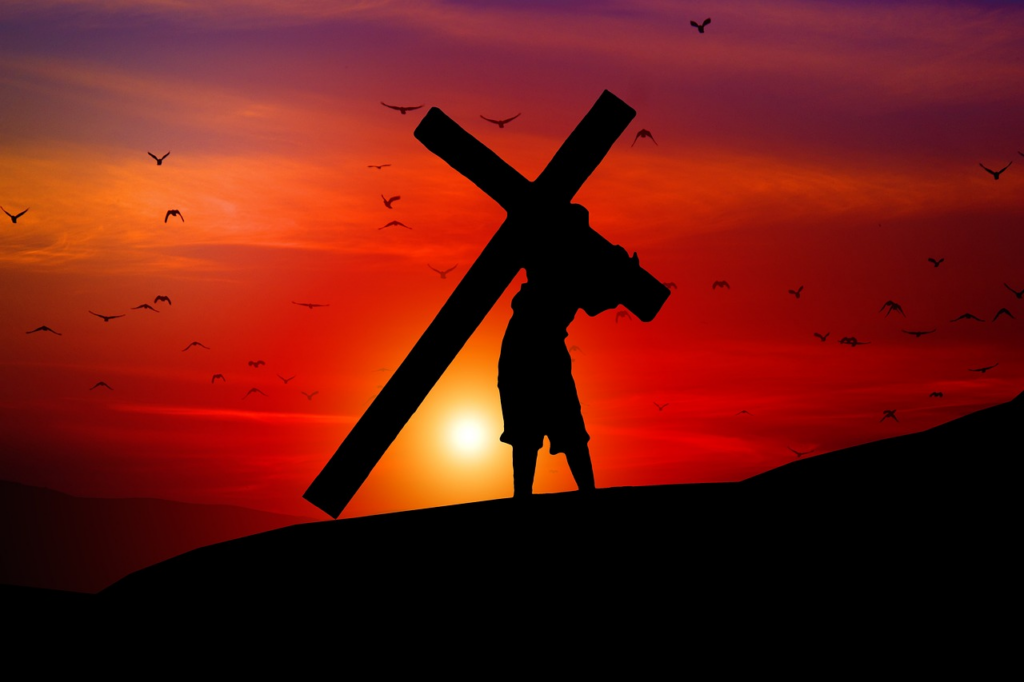Advertisement
When talking about Christianity, it's common to hear terms like evangelical and Protestant used almost interchangeably. However, although both share certain theological and historical similarities, they represent distinct traditions within Christianity.
The rise of Protestantism
The emergence of Protestantism is a fundamental milestone in the history of Christianity and has had a lasting impact not only on religion, but also on culture, politics and society in general. The movement began at the beginning of the 16th century in Europe with the criticisms and reforms proposed by leaders such as Martin Luther, John Calvin, Ulrich Zwingli and others.
Advertisement
The Protestant Reformation was triggered mainly by growing concerns about corruption and abuses within the Roman Catholic Church at the time. Among the main problems were the sale of indulgences (which promised forgiveness of sins in exchange for money), the accumulation of wealth and power by the ecclesiastical hierarchy and the distance between religious practice and the teachings of the Holy Scriptures.
Martin Luther
Martin Luther, a monk and professor of theology at the University of Wittenberg in Germany, became the catalyst for the Reformation when, in 1517, he pinned his 95 Theses to the door of Wittenberg Castle Church, questioning the validity of indulgences and calling for an academic debate on the subject. His ideas quickly spread with the help of Johannes Gutenberg's recent invention of the printing press, which enabled the rapid dissemination of texts and ideas throughout Europe.
Advertisement
Luther and other reformers argued that the supreme authority in Christian life should be the Bible, not church tradition or the papacy. They defended the doctrine of justification by faith, teaching that human beings are saved by God's grace through faith in Jesus Christ, and not by meritorious works. In addition, the Reformers preached the universal priesthood of believers, the idea that all Christians have direct access to God and can interpret the Scriptures for themselves.
Calvin
As the movement spread, other important figures, such as John Calvin in Switzerland and Ulrich Zwingli in Zurich, led similar reforms in their respective regions. Each of these reformers contributed unique ideas to the movement, resulting in a diversity of Protestant traditions that continue to exist today.

The Protestant Reformation not only reshaped religious practices, but also had profound social, political and cultural implications. The movement challenged the traditional authority of the Roman Catholic Church and eventually led to the division of Western Christendom into different denominational traditions. In addition, the emphasis on individual responsibility before God and freedom of conscience contributed to the development of political ideas such as individualism and democracy.
The Rise of Evangelical Protestantism
The rise of evangelical Protestantism is a significant phenomenon in the history of modern Christianity, which stands out for its focus on evangelization, personal conversion experience and emphasis on the authority of the Holy Scriptures. This movement has its roots in the Protestant Reformation of the 16th century, but was influenced by various historical and social factors that culminated in a spiritual renewal and a new missionary fervor in the 18th and 19th centuries.
The Great Awakening
In the 18th century, especially in the United States and Great Britain, there was a religious movement known as the Great Awakening. This movement was marked by an intense spiritual revival, in which preachers such as George Whitefield, Jonathan Edwards and John Wesley emphasized the need for a personal conversion experience and a life of genuine piety. These leaders, many of whom were Anglicans or Methodists, played a key role in the spread of evangelicalism.
Missionary Movement
In the 19th century, there was a great missionary impulse around the world, with organizations such as the London Missionary Society and the American Baptist Missionary Society sending missionaries to spread Christianity in all parts of the globe. These missionaries shared a burning evangelistic vision and a passion for spreading the gospel, often facing great challenges and personal sacrifices for the sake of their mission.
Industrialization and Migration
The rapid industrial growth and mass migrations that took place in the 19th and 20th centuries also had a significant impact on the spread of evangelical Protestantism. As people moved to the cities in search of work, new evangelical churches sprang up to meet the spiritual needs of the growing urban populations. In addition, migration to new lands, such as the United States, led to the founding of many evangelical religious communities.
Media and Technology
The development of media and technology in the 20th century also played an important role in the expansion of evangelical Protestantism. Radio, television and, more recently, the internet, have provided effective means for spreading the gospel on a global scale. Ministries such as the Billy Graham Evangelistic Association and the Trinity Broadcasting Network have used these media to reach millions of people around the world with the gospel message.
Charismatic Renewal
In the 20th century, there was a resurgence of the charismatic movement, which emphasized the experience of the Holy Spirit and spiritual gifts such as speaking in tongues and divine healing. Many of these charismatic groups were evangelical and contributed to the growth and diversification of evangelical Protestantism, especially among Pentecostal and charismatic churches.
Main Differences Between Evangelicals and Protestants
Although the terms evangelicals e protestants are often used interchangeably, there are distinct differences between these two groups within Protestant Christianity. Here are some of the main differences between them:
Emphasis on Personal Experience vs. Emphasis on Faith and Scripture
Within Protestant Christianity, one of the most striking distinctions between the groups is the emphasis placed on the personal experience of faith versus the emphasis on faith and the authority of the Holy Scriptures. While both approaches share a common basis in the belief in Jesus Christ as Savior, the way in which each group emphasizes the expression and living out of this faith can vary significantly.
Evangelicals
Evangelicals strongly emphasize the personal experience of conversion and the individual relationship with Jesus Christ as Savior. They value the personal witness of faith and often emphasize the importance of being born again or having a transformative "encounter" with Christ.
Protestants
Protestants, while also valuing personal faith in Christ, tend to place a greater emphasis on justification by faith and the authority of the Holy Scriptures. They may not emphasize the emotional experience of conversion as much as evangelicals, but rather the intellectual and theological understanding of salvation by grace through faith.
Denominational Diversity
Denominational diversity within Protestant Christianity is a remarkable phenomenon that reflects the various theological interpretations, liturgical practices and cultural traditions present within the Christian faith. Over the centuries, the Protestant movement has given rise to a multiplicity of denominations and traditions, each with its own history, distinct emphases and unique identities.
Evangelicals
The term "evangelical" covers a wide range of denominations and traditions within Protestant Christianity, including Baptists, Pentecostals, Methodists, non-denominationals and many others. This denominational diversity reflects a variety of beliefs and practices among evangelicals.

Protestants
While Protestants are also diverse in their beliefs and practices, the term "Protestant" usually refers to historical denominations such as Lutherans, Presbyterians, Anglicans and Reformed. These denominations often have distinct liturgical and theological traditions that set them apart from evangelicals.
Approaches to Worship
Worship plays a central role in the religious practice of many Christians, and within Protestant Christianity, approaches to worship can vary significantly between different denominations and traditions. From formal liturgical styles to more contemporary and informal services, the way Protestants gather to worship God reflects a diversity of preferences, historical influences and theological convictions.
Evangelicals
In evangelical worship, there is often an emphasis on contemporary music and praise, often accompanied by modern musical instruments. Worship is often characterized by an atmosphere of celebration and enthusiasm, with an emphasis on the active participation of the faithful.
Protestants
Protestant worship traditions can vary widely, from formal and structured liturgies to more informal and adaptable services. Music can include traditional hymns, choirs and organs, reflecting a variety of styles and preferences within the different Protestant denominations.
Activism and Social Engagement
Throughout its history, Protestant Christianity has demonstrated a deep commitment to social and political issues, reflecting the conviction of many believers that the Christian faith is not only limited to the spiritual realm, but also implies action and active engagement in the world. Within this context, activism and social engagement have played a significant role, shaping the way many Protestant denominations and individuals respond to the challenges facing society.
Evangelicals
Many evangelicals are known for their active involvement in social and political issues, such as human rights, racial justice, abortion and other ethical issues. They often seek to influence society based on their religious and moral beliefs.
Protestants
While Protestants can also get involved in social and political issues, their approach can be more diverse and vary according to the specific denomination. Some Protestant denominations have a long history of involvement in social causes, while others may place more emphasis on evangelization and missionary work.
What are the three Protestant religions?
It is important to note that the term "Protestant religions" is not commonly used, since Protestantism is a branch of Christianity and not a separate religion. However, within Protestantism, there are several distinct denominations and traditions that can be considered the main representatives of this branch of Christianity.
Lutheranism
Founded by Martin Luther in the 16th century in Germany, Lutheranism is one of the oldest and most influential Protestant traditions. Luther challenged the doctrines and practices of the Roman Catholic Church, proposing a theological reform that emphasized salvation by grace through faith, the authority of Scripture and the universal priesthood of all believers. Lutheranism spread rapidly throughout Europe and influenced the development of Protestantism worldwide, especially in the Scandinavian countries and North America.
Calvinism (Reformed)
Initiated by John Calvin in Switzerland in the 16th century, Calvinism, also known as the Reformed tradition, is another of the main currents of Protestantism. Calvin emphasized God's sovereignty in all areas of life, the predestination of the elect and a reformed approach to systematic theology. Calvinism had a significant impact in continental Europe, particularly in Holland, Scotland and France, and also influenced the development of Protestantism elsewhere, such as in the United States.
Anglicanism
Originating in England in the 16th century, Anglicanism is a Christian tradition that combines elements of Protestantism and Roman Catholicism. King Henry VIII broke with papal authority in Rome and established the Church of England as a national institution separate from the Roman Catholic Church.
Anglicanism retained many of the liturgical and sacramental traditions of Catholicism, but also adopted Protestant principles, such as the authority of Scripture and justification by faith. Anglicanism spread throughout the British Empire and today is practiced all over the world, with different regional and theological expressions.
These three denominations - Lutheranism, Calvinism (Reformed) and Anglicanism - represent just one part of the diversity of traditions within Protestantism. There are many other Protestant denominations and groups, each with their own distinct beliefs, practices and histories, contributing to the richness and complexity of the Protestant movement as a whole.
Understanding the terms
Evangelical and Protestant are two terms that refer to different aspects of Protestant Christianity. While all evangelicals are Protestants, not all Protestants identify themselves as evangelicals.
Both groups share a common faith in Jesus Christ, but differ in theological emphases, worship practices and social involvement. However, it is important to recognize that these differences should not be a cause for division, but rather for mutual enrichment and unity in the body of Christ.
See also: The Importance of Spirituality in the Digital Age: How Technology Affects Our Religious Practice
March 30th, 2024

She has a degree in Languages - Portuguese/English, and is the creator of the Escritora de Sucesso website. As a writer, she seeks to expand everyone's knowledge with relevant information on various subjects. At SoMuchToSayToday, she brings news and content ranging from entertainment to the country's economic situation.



